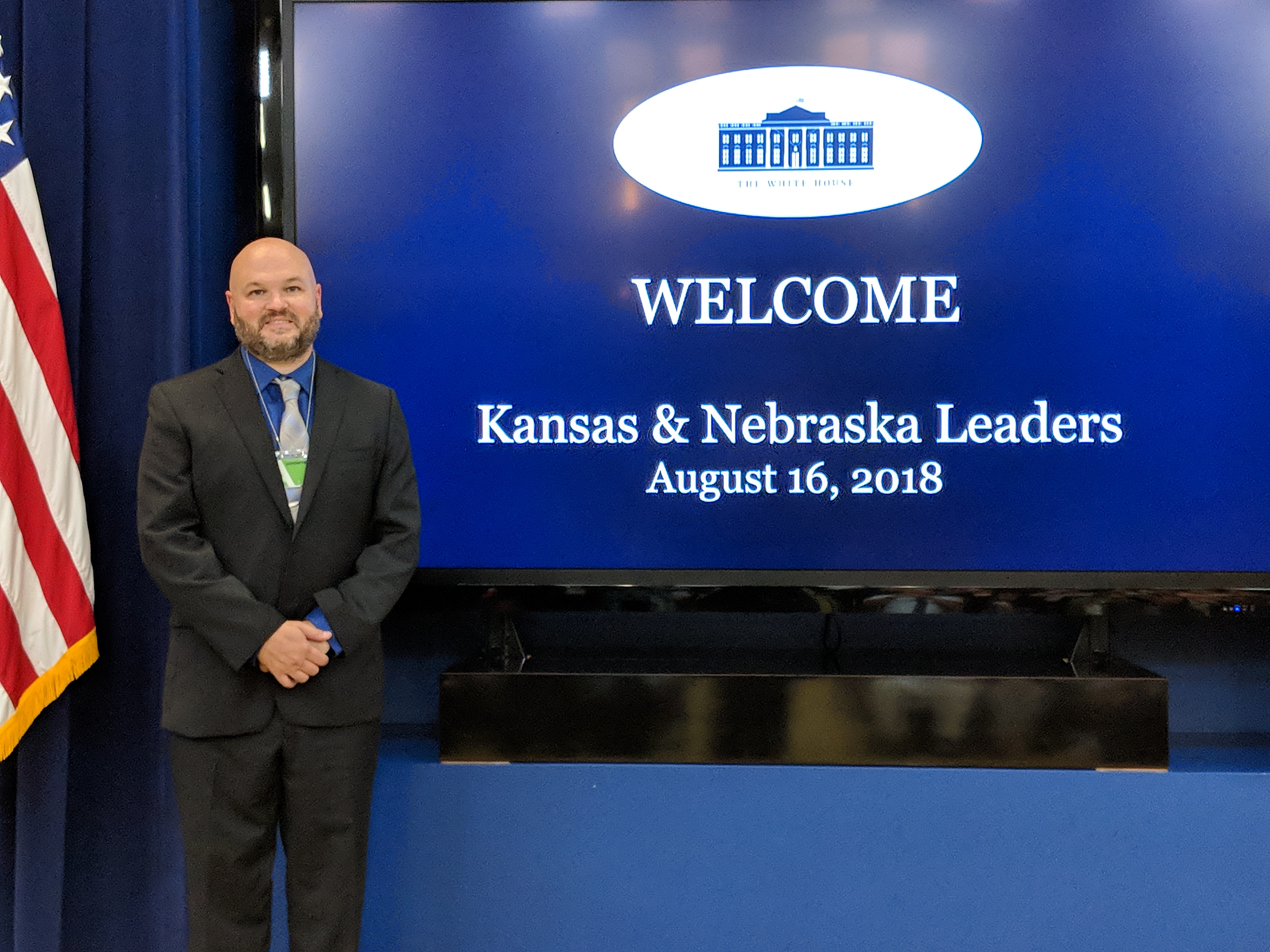
Hays Post
Hays Mayor James Meier attended a White House conference for Kansas and Nebraska mayors and county officials on Aug. 16.
He heard from Cabinet-level leaders about issues facing local governments.
Although he thought the experience was a good networking opportunity, he said on one point the speakers did not go far enough—that was the opioid crisis.
Trump adviser Kellyanne Conway spoke to the group on the opioid crisis.
Although the Conway acknowledged the growing epidemic of opioid abuse and its effects on local government, Meier, a pharmacist, said Conway fell short of admitting the federal government’s culpability in the rise of the crisis.
“They had a good message. They realize the federal government has to get involved. The state government has to get involved. The local governments have to get involved,” Meier said. “They had a good message, and I think they realize that there is not a magic bullet. There is not one plan that is going to fix everything. But I think it is important to recognize why it is happening, so we can plan appropriately.”
He explained during the 2000s, the medical community encouraged providers to treat pain as a sixth vital sign.
“You were supposed to go into a patient’s room and say, ‘OK, rate your pain on a scale from 1 to 10,” Meier said. “If a patient said 10, even if they outwardly had no signs they were in any pain, you were supposed to treat them as if their pain was a level 10 and treat the pain because nobody should ever be in pain. That was the whole mantra.”
This was a part of health care accreditation process.
If a patient ranked their pain as a 8 or 9, they knew they were going to receive opioids, Meier said.
“We hear about the opioid crisis, but we never hear about why it’s happening,” Meier said. “I think the federal government has a real part to play in why this is happening in the first place. … What I did not hear was that the federal government was part of the problem to begin with, and I think they need to recognize they were a part of the problem.”
Conway gave the example of someone going to the dentist for a chipped tooth and receiving seven days of opioids and all of a sudden they are hooked. Meier said those things do happen.
Because of the crisis, the pendulum has started to swing back the other way. Doctors are afraid to prescribe opioids for anything for fear patients will become addicted, Meier said.
Meier works with cancer patients.
“I am really scared that five or 10 years down the road, people who really need opioids will not be able to access them,” he said.
Meier said he wanted to hear the federal officials say they are trying to work toward a happy medium.
“There are probably some commonsense things that we need to be putting in place to ensure that doesn’t happen, and I think those will be put in place,” he said of people becoming addicted. “We have to have a happy balance between those people who need short-term pain control from the dentist or for a broken arm and those people who have cancer that has metastasized to their bones and they need very high doses of morphine throughout the day just to be able to function.
“I don’t have an answer,” he said, “It just seems we are going from one extreme to another.”
The conference was organized by the Office of Intergovernmental Affairs. Other speakers at the conference included Ben Carson of Housing and Urban Development, a representative of the Department of Agriculture, assistant director for the Department of Education, representative of the EPA, and a representative from the International Trade Administration.
“I do think that this group that is in the White House right now is interested in ensuring local control,” Meier said. “I do think that is a theme that came through (the conference) that they think local control is best.”
Meier also was able to meet Vice President Pence.
“You got to shake the vice president’s hand. It doesn’t matter who it is, that is kind of neat thing to say you did,” Meier said.
Meier said he also benefited from being able to speak to mayors from other Kansas and Nebraska communities. The Kansas group visited Sens. Moran and Roberts during their time in D.C. He said he thought it was important to attend to give northwest Kansas a voice in Washington. He passed on information on the R9 Ranch water project.
The group also discussed a bill in Congress that would allow telecom companies to put infrastructure in local right of way without consulting the local municipality or paying a franchise fee. This has become an issue in the Kansas City area where companies are trying to upgrade to 5G.
Meier said the bill would be very applicable to Hays as well.
“Any city wants to be able to control its right of way and be sure things are being placed in an appropriate place and there is a fair playing field as far as paying franchise fees and things like that,” he said.
The senators also talked about commodity prices and trade, but had no details about how and when the president’s $12-billion aid package to farmers was going to be distributed.
